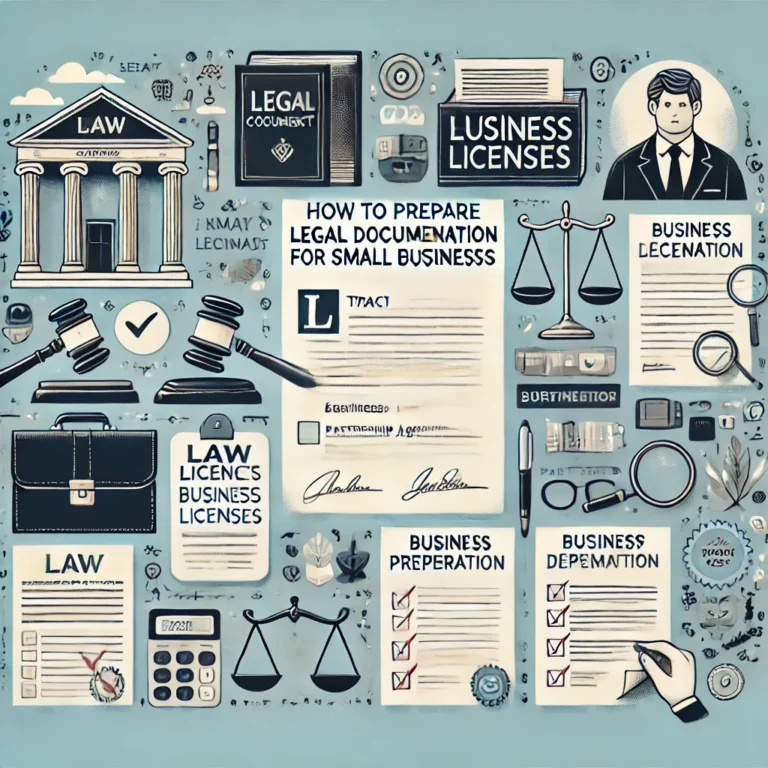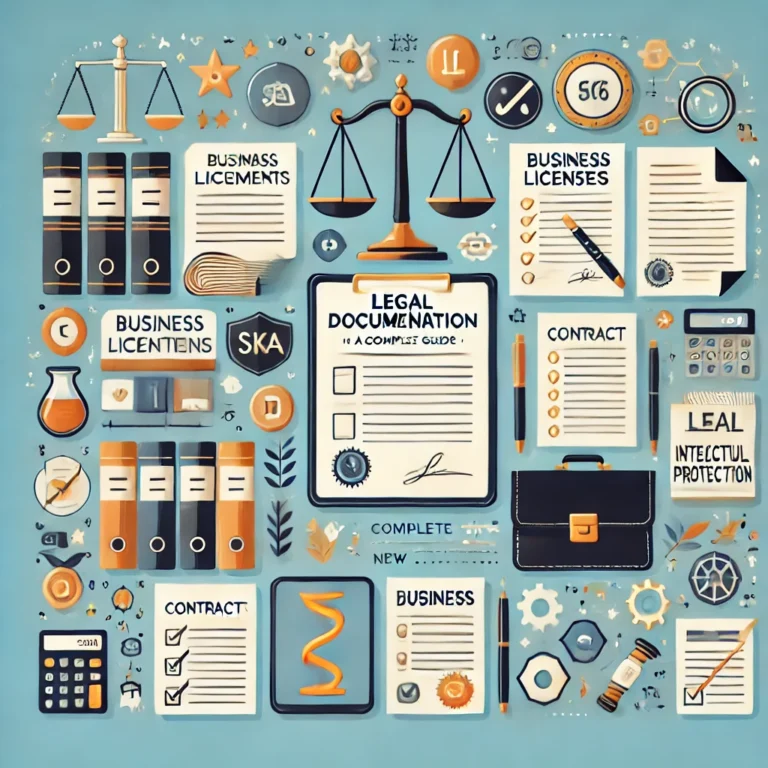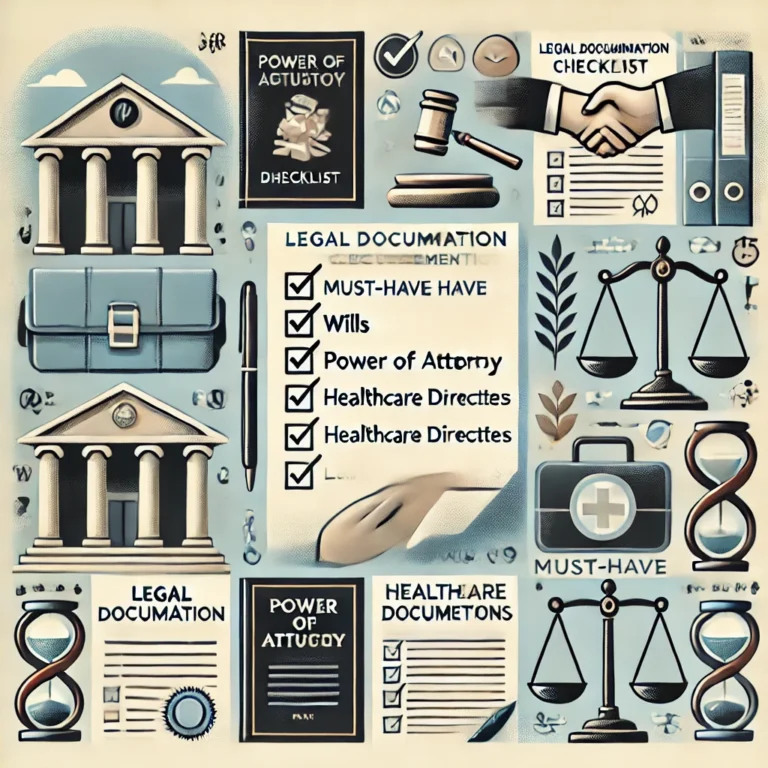Legal Documentation 101: Everything About Estate Lawyers Near Me
Estate planning is not for the faint of heart – nor should it be well-intentioned but haphazard. Estate Attorney – If you were confused about what is an estate lawyer. or “Where can I find a real estate lawyer near me?” Well, you’re in luck. If you want to discuss further with our estate lawyers, just contact us and understand how we can help you plan for the future.
What is Estate Planning?
Estate planning is the process of anticipating and arranging for the management and disposal of an estate Estate Planning Includes -Management Of assets before & after death From WIKI It can make sure your hard-earned property goes to those you intend, and it could possibly cut down potential taxation together with authorized complications on any beneficiaries.
Importance of Estate Planning
- Protects Your Assets: Ensures your assets are distributed to the people who you want them going to.
- Low Taxes: Lowers the tax liability of your estate.
- No Probate: May allow your heirs to avoid the arduous and lengthy probate process.
- Offers Peace of Mind – If for no other reason, knowing that you have prepared yourself and your family financially will allow worry-free living.
Who Are Estate Lawyers?
What Is An Estate Attorney or Probate Lawyer? They lead customers through the planning process: making wills, trusts and some other different authoritative records that help clients in managing their home.
The Role of an Estate Lawyer
You estate will must be processed the way that you want with these types of lawyers Some of their duties are as follows
- Wills and Trusts Drafting and Updating
- Counsel regarding estate and gift taxation
- Assistance with Probate Processes
- Preparing Advanced Directives and Healthcare Powers of Attorney
- Charitable contribution advice
How to Find a Probate Attorney Near Me
While finding the right estate lawyer might seem daunting, it does not have to be. These steps should set you on the path to finding a licensed estate attorney near your area.
- Ask for Recommendations
The first step is to ask if any of your friends, family or colleagues know a good estate lawyer. Other times, a personal recommendation is worth its weight in gold.
- Search Online
By simply typing estate lawyer into an internet search engine or by using other find-a-lawyer tools, you can receive a list of attorneys who practice in your area. With numerous reviews, you can zero in on the attorneys that have been rewarded with a 5-star rating for their exceptional legal services.
- Due Diligence in Professional Associations
Organizations like the American Bar Association or your state bar association can offer a directory of estate attorneys.
- Consult Legal Directories
- Websites: There are websites that have lists of estate attorneys. This directories are generally reviews and rating of client.
- Schedule Consultations
After you have a shortlist of attorneys, meet with each of them for an initial consultation. This will allow you to ask questions and see if your gut tells you they would be a good fit.
Eight Questions To Ask An Estate Lawyer
So when you sit down with an estate lawyer, it has never been more important to ask all the right questions in order to make sure that they are a fit. So, here are a few of the questions to spark that thought:
- Have you obtained an estate plan before?
- What is your pricing model?
- Do you have client references?
- How do you look at estate planning?
- How will you be up to date on what happens during the process?

What an Estate Lawyer Costs
Estate lawyers charge different rates based on the location, complexity of your estate and their experience. So here is how it might be.
- Flat Fees vs. Hourly Rates
The fee a lawyer charges to provide estate planning services can either be flat rate or per hour. The columns from left to right: 1) A flat fee which allows you to predict your costs easily, and pay at a single time or payment plan of choice; 2) An hourly rate which is more flexible according to needs.
- Additional Costs
Make sure to ask about other hidden costs- for example, filing fees and drafting of certain documentation. Always make sure to seek for clarity of all costs that may be incurred.
What Are Wills and Trusts
What is a Will and Trust?Estate Planning Basics – Wills, Trusts So, what are they and how do you tell them apart?
- What is a Will?
A will is the document that describes how your estate will be divided after you cross toxic waters. It can name guardians of your minor children and indicate funeral arrangements.
- Types of Wills
- For a simple Will: Could include no more than the asset distribution.
- Testamentary Trust Will: Creates a separate trust for the disposition of assets.
- Joint Will: Drafted by two individuals (usually a husband and wife) that operates as one legal document.
- Living Will – A document outlining your wishes for medical treatment if you’re incapacitated.
- What is a Trust?
Trust – A trust is a legal arrangement with at least three parties, where one party (the trustee) holds and manages property for the benefit of another (the beneficiary). This is the place where you can hold your trusts, potentially avoiding probate and for which it makes sense to pay estate tax dead.
- Types of Trusts
- Revocable Trust: Change or cancel as long as the grantor is alive
- Revocable Trust: Can be disregarded after established.
- Living Trust: A trust that is created by a grantor during the person’s lifetime.
- Testamentary Trust: Created by a will after the death of grantor.
Advance Directives and Healthcare Power of Attorney
Distribution of assets is not the only issue in estate planning. It is also about guiding your loved ones should you become incapacitated and cannot make choices on your own.
- Power of Attorney
A power of attorney (POA) is a legal document that allows someone you appoint to act on your behalf. Power of Attorney Types
- Durable Power of Attorney: Confers wide-ranging powers on a representative.
- Special Purpose Power of Attorney also known as Limited Power of Attorney – It will transfer a specific power to an agent for sometime.
- Managing Power of Attorney: Continues Even If You Are Incapacitated.
- Springing Power of Attorney: It becomes valid in the case that you get incapacitated.
- Healthcare Directives
The term healthcare directives is also used to refer living wills or advance directives in which a person list desires concerning treatment and course of action if that particular individual cannot communicate. These might include life support, resuscitation or organ donation decisions.
The Probate Process
What is Probate in New York? This process includes proving the will is genuine, paying off debts and taxes on behalf of you [if any], and then giving out whatever assets are left to your beneficiaries.
- Steps in the Probate Process
- Step 1- Filing a Petition – The executor files a petition with the probate court to open up the estate Requirement
- Inform Heirs and Creditors: The next step is the formal notice to heirs, creditors for probate proceedings.
- Taking Inventory of the Estate: The executor takes inventory of what was owned by deceased.
- Paying Debts and Taxes The executor will pay any outstanding debts or taxes.
- Disposition of Assets: The will provides that the assets be formally distributed to the beneficiaries.
- Avoiding Probate
Probate is slow and expensive. So, how can one avoid probate?
- Establish a Revocable Living Trust: The assets in the trust do not pass through probate.
- Joint Ownership – Property held in joint ownership passes by operation of law to the surviving owner.
- Beneficiary Designations – Decide who gets your life insurance and retirement plan proceeds by designating beneficiaries.
- Payable on Death Accounts: Bank accounts can also be transferred directly (to a beneficiary),
Estate Planning Mistakes to Avoid.
Estate planning is complicated and expensive to screw up. Mistakes to avoid in Wikipedia pages
- Not Having a Plan
A common mistake is not having a plan to begin with. If you have no plan, state laws will control the manner in which your assets are divided.
- Failing to Update Your Plan
As with all financial planning documents, you should review your estate plan whenever there is a significant change in your life such as marriage or divorce; birth of children; if your assets grow significantly because someone dies and leaves you money OR if interest rates are at 1% which may increase the benefit of setting up trusts for beneficiaries.
- Not Planning for Incapacity
So many people focus on what happens when they die, but equally important is planning for the case of incapacity. Ensure you have a power of attorney and healthcare directives.
- Overlooking Tax Implications
ESTATE AND GIFT TAXES – Your estate will have a big hole in ittoFixed__(“Estate and gift taxes can lay waste to your estate. Get an estate lawyer to reduce taxes from your held estates.
- Not Communicating Your Wishes
Designate a guardian for your children Let those close to you know what you would like their role in the future of your estate plan to be. This will help prevent miscommunications and disputes.
How an Estate Lawyer Can Help
One way to protect your assets and ensure they go where you wish is with the help of an estate lawyer. These are some of the ways in which they can help:
- Personalized Advice
An experienced estate lawyer can offer you case-specific counsel. They will be able to help you understand what your options may look like, and make better choices.
- Drafting Legal Documents
A qualified estate lawyer can prepare all the legal documents necessary, for your state, and help you to provide a plan that is desired by you.
- Minimizing Taxes
Attorneys who specialize in estate planning can assist you with reducing your gift and estate taxes so that as much of the worth of your house remains to be handed over to those members on society for whom this treasure map will represent an inheritance.
- Navigating Probate
An estate attorney can help you with the process if your state requires that probate follow and it will be established, preventing any delay or increase in cost.
Conclusion
No one likes to think about it, but estate planning is an extremely important step that you must take so your final wishes are carried out when you die and so those close to you will be taken care of. An estate attorney can be a very valuable resource in navigating the process and ensuring you do not run afoul of any traps. Investing in careful research and engaging a top estate lawyer near you seeking advice on how to structure an entire plan will serve as the greatest security blanket for your family that is complete, thorough prepared.
FAQs
- Will or trust? What is the difference.
A will is a legal document specifying to whom your assets are left upon death, whereas a trust is an arrangement where one person or entity holds and manages property for the benefit of another. Avoids probate and can reduce taxes by using a trust.
- How Much Does it Cost to Hire a Real Estate Attorney
Estate lawyers charge vary greatly depending on where you live, the complexity of your estate and how much experience a lawyer has. Flat Rate Or Hourly Charge.






